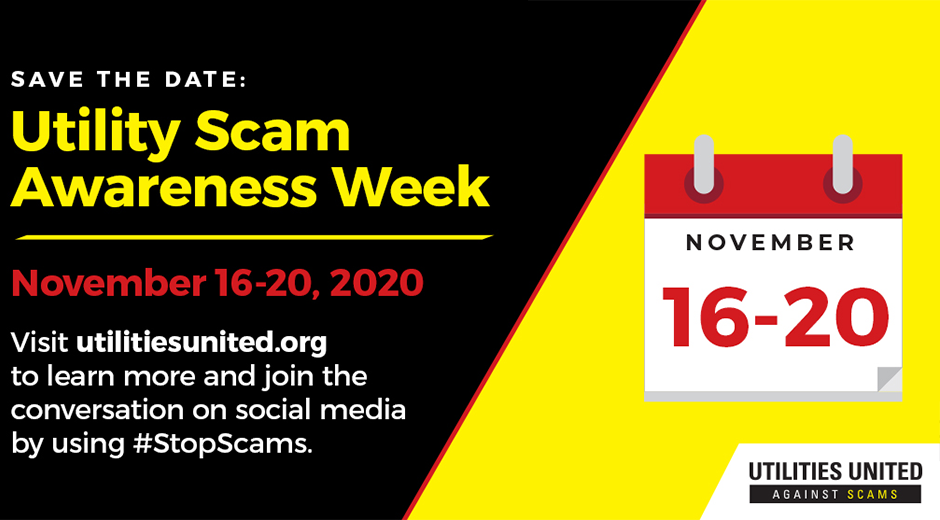FirstEnergy Customers Reminded to be Alert for Utility Scams Amid Coronavirus Pandemic and Cold Weather
The impending cold weather, a pandemic causing financial hardships for many and changes in procedures for disconnecting service for non-payment have given utility imposters more opportunities to prey on consumer fears. That’s why FirstEnergy and dozens of other utility companies are banding together for Utility Scam Awareness Week, held November 16 to 20.
With dropping temperatures increasing reliance on electricity for heating, FirstEnergy customers are reminded to be alert for any unusual requests related to their electric account, such as a demand for immediate payment to avoid same-day shutoff or a request for personal information like a social security number.
Uniting Against Scams
The annual Utility Scam Awareness Week is organized by Utilities United Against Scams, a consortium of more than 130 utilities and related organizations working together to educate the public about the ever-growing list of scams targeting utility customers and how to stay vigilant.
"We take our customers' safety and security very seriously," said Michelle Henry, vice president of customer service at FirstEnergy. "Scammers can be very convincing and often target those who are most vulnerable, like customers struggling to make ends meet due to the coronavirus pandemic.”
To date in 2020, we have received more than 1,200 reports of scams from customers. The actual number of scam attempts is even higher since many go unreported to the company or law enforcement officials.
How to Prevent a Utility Scam
Although utility imposters work year-round, they are most active in the winter and summer months, when people are most concerned about not having heat or air conditioning.
FirstEnergy customers can shut the door on these opportunists by keeping the following information in mind:
Customers who are behind on their accounts receive written notices of a possible disconnection and how to prevent it. FirstEnergy representatives will not call or email to demand immediate payment to avoid a same-day shutoff.
While FirstEnergy representatives often make courtesy calls to customers to remind them about an outstanding balance, they would explain how a payment can be made using the established payment options. They would never require a customer to purchase a pre-paid money card as the only acceptable means of payment.
FirstEnergy field collectors working in New Jersey, Maryland and Ohio – carrying company-issued photo identification – will offer customers with past-due accounts the opportunity to pay their bill in person before shutting them off.
FirstEnergy employees do not contact customers to request sensitive information such as social security numbers or bank account information.
Scammers often use Caller ID spoofing software to misrepresent the source of a phone call to further mislead and confuse their targets. Call-back numbers provided by these criminals often use greetings and hold messages that mimic legitimate businesses.
Customers who suspect a scam should hang up the phone or close the door and call the local police then FirstEnergy. Customers can contact FirstEnergy to confirm the identity of a FirstEnergy employee.
If customers have any doubts about the status of their electric service, they should call their utility company using the customer service phone number listed on the FirstEnergy website to ask about their account. Never dial the phone number the scammer provides.
We’re Here to Help
Customers who are experiencing financial difficulties are encouraged to contact us for bill assistance. We offer a wide array of approved billing and payment options.
Please share this information with friends and family to continue raising awareness about utility scams, and periodically visit firstenergycorp.com/scaminfo for updates on emerging scam activity. You can also follow FirstEnergy utilities on Facebook and Twitter, as well as Utilities United Against Scams, for regular scam safety tips.
FirstEnergy's award-winning video, "Hang Up, Don't Pay Up: When a Scammer Calls," features two business owners contacted by phone scammers impersonating FirstEnergy electric company employees.

